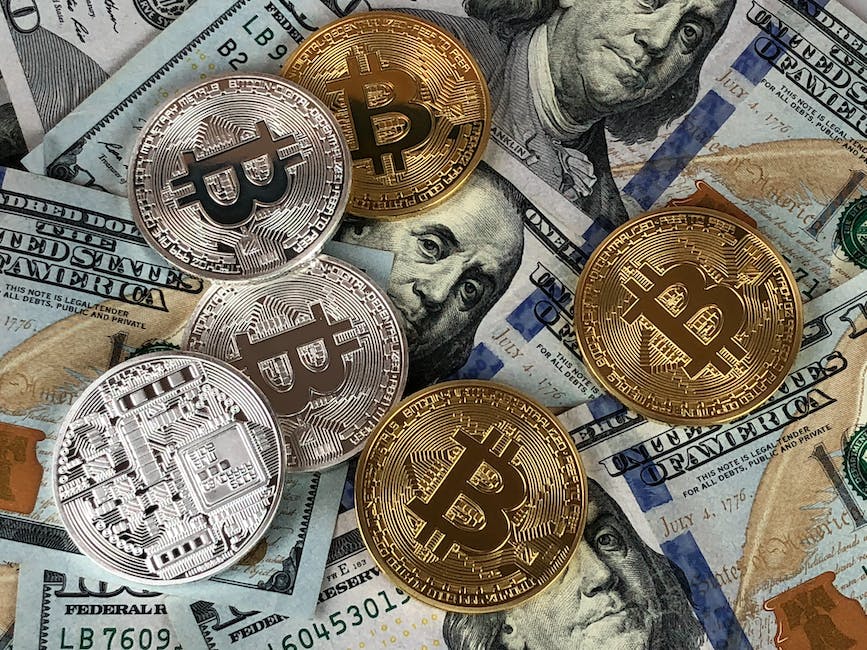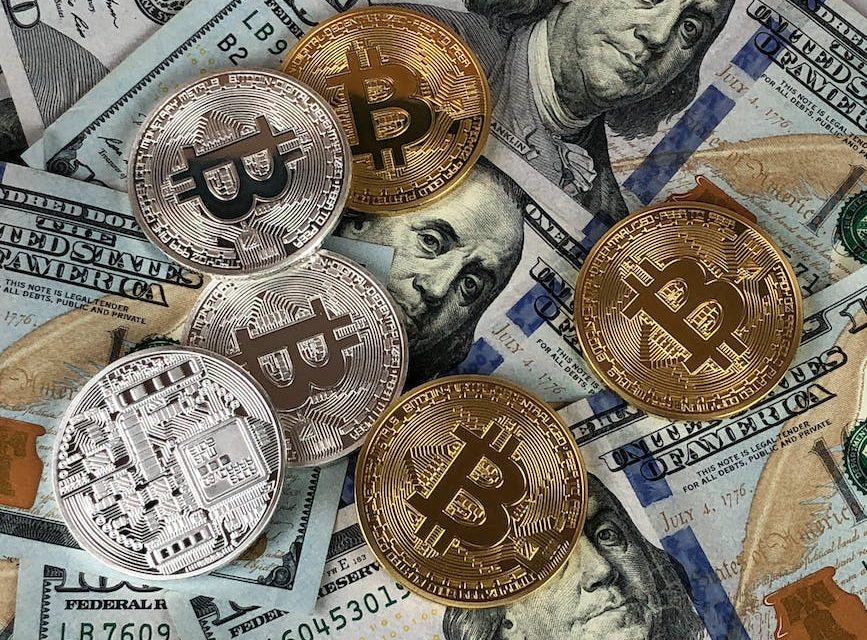Table of Contents
- Introduction
- Decentralized Finance (DeFi) and its Impact on Traditional Banking Systems
- Supply Chain Management and Blockchain’s Role in Enhancing Transparency and Efficiency
- Blockchain Applications in Healthcare: Improving Data Security and Interoperability
- Exploring Blockchain’s Potential in Government Services and Public Administration
- Q&A
- Conclusion
“Unlocking the Potential: Discover the Top 10 Blockchain Applications for Leaders”
Introduction
Blockchain technology has gained significant attention in recent years due to its potential to revolutionize various industries. From finance to supply chain management, blockchain applications have the power to transform traditional processes and enhance efficiency, transparency, and security. In this article, we will explore the top 10 blockchain applications that every leader should know. These applications have the potential to reshape industries and provide leaders with valuable insights into the future of blockchain technology.
Decentralized Finance (DeFi) and its Impact on Traditional Banking Systems

Decentralized Finance (DeFi) and its Impact on Traditional Banking Systems
In recent years, the rise of blockchain technology has revolutionized various industries, and one area that has seen significant disruption is the financial sector. Decentralized Finance, or DeFi, has emerged as a game-changer, offering a range of applications that challenge traditional banking systems. This article will explore the top 10 blockchain applications in DeFi that every leader should know.
1. Peer-to-Peer Lending: DeFi platforms enable individuals to lend and borrow funds directly from one another, eliminating the need for intermediaries like banks. This decentralized approach allows for greater accessibility and lower interest rates, benefiting both lenders and borrowers.
2. Stablecoins: Stablecoins are cryptocurrencies pegged to a stable asset, such as a fiat currency or a commodity. These digital assets provide stability in a volatile market, making them ideal for everyday transactions and reducing the reliance on traditional banking systems.
3. Decentralized Exchanges: Traditional exchanges are centralized, meaning they are controlled by a single entity. In contrast, decentralized exchanges operate on blockchain networks, allowing users to trade directly with one another. This eliminates the need for intermediaries and enhances security and transparency.
4. Automated Market Makers (AMMs): AMMs are smart contracts that facilitate decentralized trading. They use algorithms to determine asset prices based on supply and demand, enabling users to trade without relying on order books. This innovation has made trading more efficient and accessible to a wider audience.
5. Yield Farming: Yield farming involves lending or staking cryptocurrencies on DeFi platforms to earn additional tokens as rewards. This practice incentivizes liquidity provision and drives the growth of decentralized finance. However, it also comes with risks, such as smart contract vulnerabilities and market volatility.
6. Decentralized Insurance: DeFi has also disrupted the insurance industry by offering decentralized insurance platforms. These platforms use smart contracts to automate the claims process, reducing costs and increasing transparency. Users can protect their assets without relying on traditional insurance providers.
7. Decentralized Identity: Blockchain technology enables the creation of decentralized identity systems, where individuals have control over their personal data. This eliminates the need for centralized identity verification systems, reducing the risk of data breaches and identity theft.
8. Supply Chain Management: Blockchain-based supply chain solutions provide transparency and traceability, ensuring the authenticity and quality of products. By recording every transaction on a decentralized ledger, businesses can enhance efficiency, reduce fraud, and build trust with consumers.
9. Tokenization of Assets: Tokenization allows real-world assets, such as real estate or artwork, to be represented as digital tokens on a blockchain. This enables fractional ownership, increased liquidity, and easier transferability of assets. It also opens up investment opportunities to a broader range of investors.
10. Decentralized Governance: Blockchain-based governance systems enable decentralized decision-making and voting. This allows stakeholders to participate in the decision-making process, reducing the concentration of power in centralized entities. It also promotes transparency and accountability.
In conclusion, DeFi has the potential to disrupt traditional banking systems by offering innovative blockchain applications. From peer-to-peer lending to decentralized governance, these applications provide greater accessibility, transparency, and efficiency. Leaders in various industries should familiarize themselves with these developments to stay ahead in an ever-evolving digital landscape. Embracing the potential of DeFi can lead to transformative changes in the financial sector and beyond.
Supply Chain Management and Blockchain’s Role in Enhancing Transparency and Efficiency
Supply Chain Management and Blockchain’s Role in Enhancing Transparency and Efficiency
In today’s globalized world, supply chain management plays a crucial role in ensuring the smooth flow of goods and services from manufacturers to consumers. However, traditional supply chain systems often suffer from inefficiencies and lack of transparency, leading to delays, fraud, and increased costs. This is where blockchain technology comes into play, offering a decentralized and transparent solution that can revolutionize supply chain management.
Blockchain, the underlying technology behind cryptocurrencies like Bitcoin, is a distributed ledger that records transactions across multiple computers. It provides a secure and transparent way to track and verify transactions, making it an ideal tool for supply chain management.
One of the key benefits of blockchain in supply chain management is enhanced transparency. With blockchain, every transaction is recorded on a shared ledger that is accessible to all participants in the supply chain. This means that every party involved, from manufacturers to distributors to retailers, can have real-time visibility into the movement of goods and the status of transactions. This transparency helps to eliminate information asymmetry and reduces the risk of fraud and counterfeiting.
Another advantage of blockchain in supply chain management is increased efficiency. Traditional supply chain systems often rely on manual processes and paper-based documentation, which can be time-consuming and prone to errors. With blockchain, all relevant information, such as product details, certifications, and shipping documents, can be stored in a secure and tamper-proof manner. This eliminates the need for manual data entry and reduces the risk of errors, leading to faster and more accurate processing of transactions.
Blockchain can also help to streamline supply chain financing. In traditional supply chain systems, financing can be a complex and time-consuming process, with multiple parties involved in verifying and approving transactions. With blockchain, smart contracts can be used to automate and streamline the financing process. Smart contracts are self-executing contracts with the terms of the agreement directly written into code. They automatically trigger actions and payments when predefined conditions are met, eliminating the need for intermediaries and reducing the time and cost associated with financing.
Furthermore, blockchain can improve traceability and provenance in supply chains. With blockchain, every transaction is recorded and linked to a unique identifier, such as a barcode or QR code. This allows for easy tracking of products throughout the supply chain, from raw materials to finished goods. This not only helps to prevent counterfeit products from entering the market but also enables consumers to verify the authenticity and origin of the products they purchase.
Blockchain technology is already being used in various supply chain applications. For example, Walmart, one of the world’s largest retailers, has implemented blockchain to track the movement of food products from farm to store. This allows Walmart to quickly trace the source of any contaminated products and remove them from the shelves, reducing the risk of foodborne illnesses.
In conclusion, blockchain technology has the potential to revolutionize supply chain management by enhancing transparency, increasing efficiency, and improving traceability. By leveraging blockchain, leaders in supply chain management can streamline their operations, reduce costs, and provide better products and services to their customers. As blockchain continues to evolve and mature, it is essential for leaders to stay informed about its applications and potential benefits in order to stay ahead in today’s competitive business landscape.
Blockchain Applications in Healthcare: Improving Data Security and Interoperability
Blockchain Applications in Healthcare: Improving Data Security and Interoperability
Blockchain technology has gained significant attention in recent years due to its potential to revolutionize various industries. One sector that stands to benefit greatly from blockchain is healthcare. With the increasing digitization of medical records and the need for secure and interoperable data, blockchain offers a promising solution. In this article, we will explore the top 10 blockchain applications in healthcare that every leader should know.
1. Secure Medical Records: Blockchain can provide a secure and tamper-proof platform for storing and sharing medical records. By encrypting patient data and distributing it across a decentralized network, blockchain ensures that sensitive information remains private and protected from unauthorized access.
2. Interoperability: One of the biggest challenges in healthcare is the lack of interoperability between different systems and providers. Blockchain can enable seamless data exchange between healthcare organizations, allowing for better coordination of care and improved patient outcomes.
3. Clinical Trials: Blockchain can streamline the process of conducting clinical trials by securely storing and sharing trial data. This can enhance transparency, reduce fraud, and accelerate the development of new treatments and therapies.
4. Drug Supply Chain Management: Blockchain can track the entire lifecycle of a drug, from manufacturing to distribution, ensuring that counterfeit or substandard drugs do not enter the market. This can help improve patient safety and reduce the risk of medication errors.
5. Medical Research: Blockchain can facilitate the sharing of research data among scientists and researchers, enabling collaboration and accelerating the discovery of new treatments. By providing a transparent and immutable record of research findings, blockchain can enhance the credibility and reproducibility of scientific studies.
6. Telemedicine: With the rise of telemedicine, there is a growing need for secure and reliable platforms for remote consultations. Blockchain can provide a decentralized infrastructure for telemedicine, ensuring the privacy and integrity of patient-doctor interactions.
7. Health Insurance: Blockchain can streamline the claims process by automating the verification of insurance coverage and reducing fraud. By eliminating intermediaries and providing a transparent record of transactions, blockchain can make the insurance industry more efficient and cost-effective.
8. Personalized Medicine: Blockchain can enable the secure storage and sharing of genomic data, allowing for personalized treatment plans based on an individual’s unique genetic profile. This can lead to more targeted and effective therapies, improving patient outcomes.
9. Public Health Surveillance: Blockchain can enhance public health surveillance by securely collecting and analyzing data on disease outbreaks and epidemics. By providing real-time and transparent information, blockchain can help authorities respond more effectively to public health emergencies.
10. Patient Consent Management: Blockchain can empower patients to have greater control over their health data by allowing them to grant or revoke consent for its use. This can enhance patient privacy and ensure that data is only shared with authorized parties.
In conclusion, blockchain technology holds immense potential for transforming the healthcare industry. From improving data security and interoperability to revolutionizing clinical trials and personalized medicine, the applications of blockchain in healthcare are vast. As leaders in the healthcare sector, it is crucial to stay informed about these developments and explore how blockchain can be leveraged to drive innovation and improve patient care.
Exploring Blockchain’s Potential in Government Services and Public Administration
Blockchain technology has gained significant attention in recent years due to its potential to revolutionize various industries. While most people associate blockchain with cryptocurrencies like Bitcoin, its applications extend far beyond the financial sector. One area where blockchain shows immense promise is in government services and public administration. In this article, we will explore the top 10 blockchain applications that every leader should know in this domain.
1. Identity Management: Blockchain can provide a secure and decentralized platform for managing identities. By storing personal information on the blockchain, individuals can have control over their data, reducing the risk of identity theft and fraud.
2. Voting Systems: Blockchain can enhance the transparency and integrity of voting systems. By recording votes on a distributed ledger, it becomes nearly impossible to tamper with the results, ensuring fair and trustworthy elections.
3. Land Registry: Blockchain can streamline the process of recording and transferring property ownership. By eliminating the need for intermediaries, such as lawyers and notaries, blockchain can reduce costs and increase efficiency in land registry systems.
4. Supply Chain Management: Blockchain can provide end-to-end visibility and traceability in supply chains. By recording every transaction and movement of goods on the blockchain, stakeholders can ensure the authenticity and quality of products, reducing the risk of counterfeiting and improving consumer trust.
5. Intellectual Property Rights: Blockchain can help protect intellectual property rights by providing a transparent and immutable record of ownership. This can be particularly beneficial for artists, musicians, and inventors who want to prove the authenticity and ownership of their creations.
6. Taxation and Revenue Collection: Blockchain can improve the efficiency and accuracy of tax collection processes. By automating the recording and verification of transactions, blockchain can reduce the risk of tax evasion and increase government revenue.
7. Public Health: Blockchain can facilitate the secure sharing of medical records and improve the interoperability of healthcare systems. This can lead to better patient care, reduced medical errors, and improved public health outcomes.
8. Social Welfare: Blockchain can enhance the delivery of social welfare programs by ensuring that benefits reach the intended recipients. By recording and verifying eligibility criteria on the blockchain, governments can reduce fraud and ensure that resources are allocated efficiently.
9. Public Procurement: Blockchain can increase transparency and accountability in public procurement processes. By recording every step of the procurement process on the blockchain, governments can prevent corruption and ensure fair competition among suppliers.
10. Notarization and Document Authentication: Blockchain can provide a secure and tamper-proof method for notarizing and authenticating documents. By storing document hashes on the blockchain, individuals and organizations can prove the existence and integrity of their records.
In conclusion, blockchain technology holds immense potential in government services and public administration. From identity management to notarization, the applications of blockchain are vast and can bring about significant improvements in transparency, efficiency, and trust. As leaders in this domain, it is crucial to stay informed about these applications and explore how they can be leveraged to transform public services for the better.
Q&A
1. What are the top 10 blockchain applications that every leader should know?
– Supply chain management
– Financial services and banking
– Healthcare and medical records
– Voting systems
– Intellectual property protection
– Identity verification
– Real estate and property transactions
– Energy trading and management
– Charity and donations
– Decentralized internet and social media platforms
2. Why is supply chain management considered a top blockchain application?
– Blockchain can provide transparency and traceability in supply chains, reducing fraud and ensuring ethical practices.
3. How can blockchain benefit the financial services and banking industry?
– Blockchain can streamline transactions, reduce costs, and enhance security by eliminating intermediaries and providing immutable records.
4. What advantages does blockchain offer in healthcare and medical records?
– Blockchain can securely store and share medical records, ensuring privacy, interoperability, and accurate patient information.
Conclusion
In conclusion, understanding the top 10 blockchain applications is crucial for leaders in today’s digital landscape. These applications, ranging from supply chain management to healthcare records, have the potential to revolutionize industries by enhancing transparency, security, and efficiency. By staying informed about these blockchain applications, leaders can make informed decisions and harness the power of this transformative technology for their organizations’ success.





